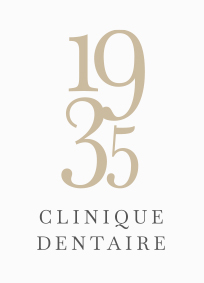The oral health of your infant will impact how their primary teeth develop and their overall oral health as they grow up.
To help new parents get a clear idea of what’s involved in infant oral health care, our Montreal dentists explain how baby teeth develop and offer tips for maintaining optimal oral health in infants and toddlers.
Importance of infant oral health care
Good oral hygiene in babies is fundamental to their overall well-being. It plays a role in the healthy development of teeth, which your growing child will depend on for getting adequate nutrition and learning to speak. Dental health also impacts a child’s appearance.
Taking care of an infant and toddler’s oral health helps prevent dental diseases like baby bottle tooth decay, which can affect feeding and cause significant pain. Caring for your baby’s mouth is an investment in their future health, so don’t take it lightly.
What is baby bottle tooth decay?
Baby bottle tooth decay, also known as baby bottle syndrome, occurs when the primary teeth develop premature decay. It can lead to early tooth loss and cause nutritional and speech complications.
The process usually begins around the age of 3 or 4 and progresses rapidly, especially in children who regularly drink sugary liquids (sweetened milk, juice, soda).
As the name suggests, a common cause of baby bottle tooth decay is leaving a baby or toddler to fall asleep with a bottle of sweet liquid. This exposes their teeth to sugars for a longer period and leads to premature decay. Dentists recommend never leaving children to fall asleep with a bottle in bed, and rinsing their mouths after they drink milk.
Oral motor development in babies
A baby’s oral development begins long before birth. By becoming aware of the most important developmental stages, parents can learn what is involved in maintaining good oral health from the very first days of your little one’s life.
Developement of milk teeth
The foundations of oral health are laid long before a baby is born. Milk teeth, or baby teeth, begin to form in the fetal jaw. Primary dentition lays the foundation for a healthy smile in the earliest stages of life.
Baby’s first tooth
Baby’s first teeth generally erupt when they are between 6 and 12 months old, although this timetable can vary considerably. Some infants may even be born with one or more teeth, a reminder that healthy dental development can include a wide variety of normal differences among infants and toddlers.
Primary dentition
By the age of 3, most children have a full set of 20 milk teeth. This marks a milestone in oral development, as your toddler is now capable of chewing more foods and further developing their speech.
Early care is key
Careful monitoring and care beginning from the earliest stages of life lays a solid foundation for healthy primary teeth and good long-term dental health. For more information, call our dentists in Montreal East!
Tips for maintaining good infant oral hygiene
Here are a few infant oral health care tips from our dental care professionals to help parents maintain baby’s oral health.
Early gum cleaning
Even before the first teeth erupt, you can gently clean your baby’s gums with a soft, damp cloth. This is an easy way to remove potentially harmful bacteria from your baby’s mouth.
Introducing a toothbrush and fluoride toothpaste
When teeth first begin to appear, it’s time to introduce a soft, children’s toothbrush. Using a small amount of fluoride toothpaste will help strengthen tooth enamel and prevent cavities. It’s important to learn proper brushing techniques at an early age.
A healthy diet
You can support your toddler’s healthy oral development by maintaining a diet that is rich in vitamins and minerals. This means eating plenty of vegetables, fruit and dairy products. Limit exposure to sugars and drink mainly water for optimal oral hygiene.
Trust your infant oral health care to our dentists
The importance of maintaining oral health from an early age cannot be underestimated. A healthy mouth plays a central role in overall development and can prevent long-term dental problems. A proactive approach focused on hygiene and diet will lay the foundation for a lifetime of oral health.
At Clinique Dentaire 1935, we provide a warm, personalized care experience for every member of the family, both young and old. Our commitment to excellent dental hygiene extends across generations! Every patient receives the care and attention they need to maintain a lifelong, healthy smile.
Contact us today to book an appointment with one of our dentists!
